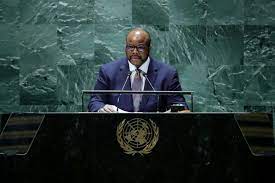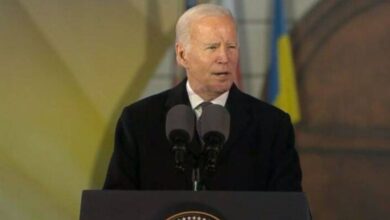A Long Live the King? The last absolute monarchy in Africa, Eswatini, holds elections
Despite recent, fatal pro-democracy demonstrations, Eswatini, Africa’s last absolute monarchy, has parliamentary elections on Friday that are unlikely to alter the political climate in the strictly regulated nation.
In the 1.2 million-person country of southern Africa, where voting centers open at 7:00 am (0500 GMT) and shut 11 hours later, more than 500,000 individuals are enrolled to vote.
59 candidates are up for election to the lower house of parliament, which serves as King Mswati III’s advisory body but has no further powers.
The opposition, which has overwhelmingly advocated for a boycott of the vote, sees the results as inevitable and expects them to be released soon.
The Swaziland young Congress, the young wing of an outlawed pro-democracy party, is led by 28-year-old Sakhile Nxumalo. “They are saying that there are elections that are free and fair (but) there is nothing like that,” she added.
“They only serve the interests of a select few, so we don’t take this election seriously.”
The landlocked nation between South Africa and Mozambique forbids political parties, and parliamentarians are not permitted to be members of political parties.
The constitution places a strong focus on “individual merit” for choosing MPs. Opposition organizations are often managed from overseas even though it permits freedom of association.
Traditional leaders trusted by the monarch nominated candidates at village council meetings.
The majority are devoted to King Mswati, who is in complete control.
The system will remain.
King Mswati, 55, has been in charge since 1986 and is legally above the law.
He selects the prime minister and the cabinet, has the authority to dissolve the government and the legislature, and is in charge of the police and the army.
He must sign off on legislation for it to take effect.
We are subject to a dictatorship. According to Thantaza Silolo, spokesman for the major opposition party, the Swaziland Liberation Movement (Swalimo), “If one raises his voice, the police come knocking at his door at night and charge him for treason or something.”
Eswatini, formerly Swaziland, was rocked by pro-democracy demonstrations in 2021.
When security forces forcibly put down protests clamoring for change, dozens of people died.
Two opposition MPs who won the latest 2018 election are now in prison. One more is exiled.
According to Moses Dlamini, 75, a king’s advisor, “monarchy is not a political system; it is a traditional system.”
“The system shall remain in place.”
King Mswati has come under heavy fire for leading a luxurious lifestyle while about a third of the 1.2 million citizens of the kingdom are living in poverty.
“Life in Eswatini is terrible, terrible,” said Phinah Nxumalo, 58, a vendor of dried maize and spinach used to create a popular and inexpensive local porridge.
Her store is tucked away in the crowded market of Manzini, the economic center of the kingdom, where ladies wearing traditional attire buy between racks of colorful produce and inexpensive clothing.
“We educate and raise our children, but they remain at home since there are no jobs available. It’s absurd,” said Nxumalo.
The king is not mentioned by her. Criticizing the king might land you in jail.







